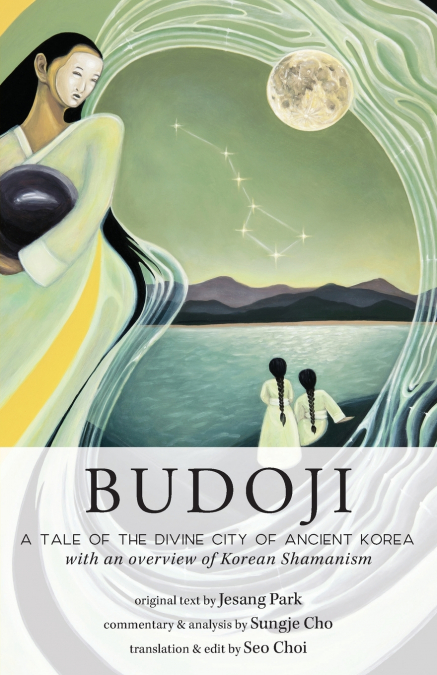
Jesang Park / Sungje Cho / Seo Choi
A powerful ancient story of indigenous Korea about the creation of the universe, the dawn of humanity, and more.Now available in English for the first time, with an overview of Korean ShamanismAn essential resource for those seeking to connect with deep Korean ancestral wisdom.The original text of Budoji was written by Jesang Park (363 - 419 CE), a loyal official of the Silla Kingdom of ancient Korea. It was a chapter in a larger collection of books titled Jing Shim Rok, which was passed down through Park’s family over many generations. It was later introduced to the world in 1953 by one of his descendants.In Budoji: A Tale of the Divine City of Ancient Korea with an Overview of Korean Shamanism, Sungje Cho, the author and scholar of Korean Shamanism brings the ancient original text with the interpretation and additional information about Korea’s indigenous cultural and spiritual wisdom for the modern readers.Budoji illuminates the culture and early beliefs of the people of Ancient Joseon (Gojoseon), including stories about the creation of the world as well as the origins, evolution, and migratory movements of the Korean people. The word Budo refers to both a capital city and a nation that acts in accordance with the Divine-signifying that the will of the Divine is fulfilled on Earth. This is the founding principle on which Gojoseon, the kingdom of Dangun, was built upon.Budoji includes stories of: The creation of the universe and humanity by the Goddess MagoThe migrations of four human clans from Mago’s paradise The Great Flood The indigenous wisdom and cultural practices of the people of ancient KoreaThis volume is the first English translation of Budoji and includes an in-depth overview of Korean Shamanism by Sungje Cho. It includes information about:The history of Korean ShamanismExplanations of Mudangs, the Korean ShamansVarious Types of Korean Gut RitualsKorean Shamanic Gods and DeitiesKorean Shamanic Tools and Their SignificanceBeliefs on Death and the Afterlife in Korean Shamanism